Five years after "Prometheus," the latest installment in the Alien series, "Alien: Covenant," finally arrives. With six films in the series - "Alien," "Aliens," "Alien 3," "Alien: Resurrection," and the prequels "Prometheus" and "Alien: Covenant" - it's clear that the series can be sharply divided into two camps: if you prefer monster movies, seek excitement, and relish in human vs. creature battles, then "Aliens," "Alien 3," and "Alien Resurrection" are for you. But if you're unsatisfied with the conventions of mainstream blockbusters and crave a deeper understanding of the Alien universe, even its philosophical underpinnings, then "Alien," "Prometheus," and "Alien: Covenant" are essential viewing. These three films embody the essence of the Alien series.
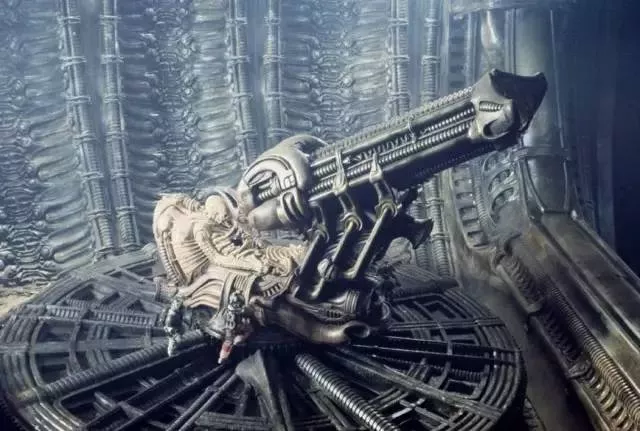
Just look at the directors: the first three films were helmed by James Cameron, David Fincher, and Jean-Pierre Jeunet, while the latter three were all directed by Ridley Scott. It's as if Alien is Ridley Scott's child, born of him and given new life by him.
When you think of Ridley Scott, his name is familiar for a reason. He's a highly successful director of commercial blockbusters, with films like "Gladiator," "Thelma & Louise," "Black Hawk Down," and "Kingdom of Heaven" under his belt. Few directors have his range of subjects and ability to master various genres, perhaps only rivaled by Stanley Kubrick. His classic works cover the eternal themes of science fiction: space travel, futuristic cities, and mysterious monsters, with films like "The Martian," "Blade Runner," and the Alien series.
Undoubtedly, the Alien series is groundbreaking in the theme of "mysterious monsters." In 1979, Ridley Scott's "Alien" burst onto the scene, following in the footsteps of "Star Wars" and opening up a new world of science fiction.
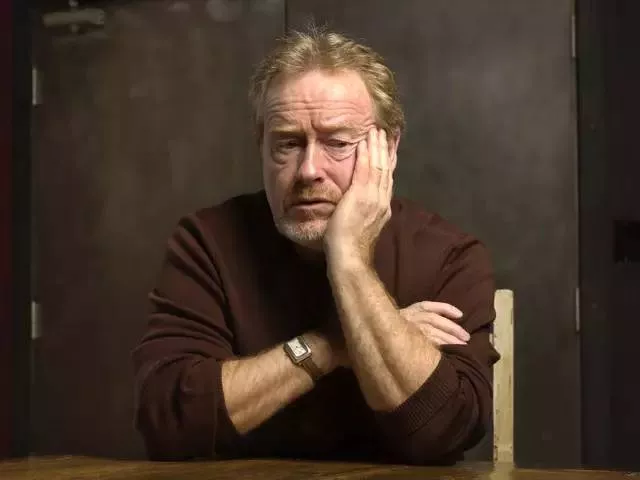
For those who have seen it, the opening scene is unforgettable. The camera slowly pans across the sky, revealing the dark side of a planet, where a spaceship appears, and the camera pushes forward into the hull. Then, the camera takes on a "ghostly perspective," wandering through the empty ship's interior like a lurking eye, revealing the truth about the human world. This filming technique shattered the arrogance of human "egocentrism": isn't this world supposed to operate only when "I" am awake? No, it's always in motion. This nearly silent opening sets the tone for the Alien series: bleak, quiet, and full of hidden dangers.
What's even more interesting is that "Alien" wraps a critical core beneath the monster movie exterior. The external threat of the Alien reflects human greed. The Aliens attack humans not out of evil intentions but simply due to reproductive instincts or the need for survival.
Humans, on the other hand, have more "advanced" desires after fulfilling their basic needs. They constantly explore, loot, and take risks, just like the crew members encountering the Aliens, who are bait deliberately set by the military to sacrifice them and bring the Aliens back to Earth for human use. The real danger doesn't come from the Aliens but from the human desire for power. This plotline inevitably brings to mind the late Cold War era, where the United States and the Soviet Union recklessly engaged in an arms race, much like human greed for the power of the Aliens.
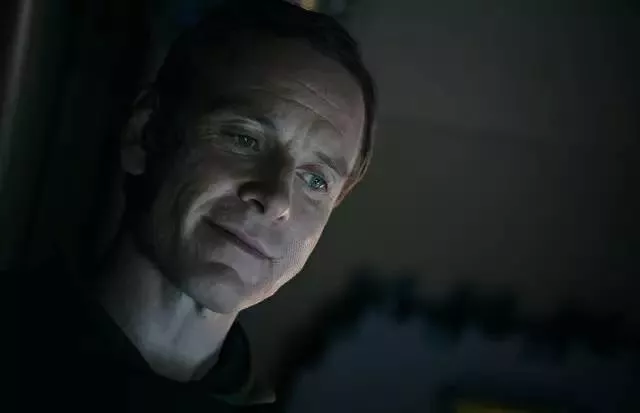
Even the design of the Alien, which secretes strong acid after being attacked, is reminiscent of the "nuclear deterrence" mentality of the Cold War era. Therefore, from the beginning, the Alien series is more than just monster movies. Beneath the surface of blood and horror, it has serious, speculative themes. Still, unfortunately, these themes were abandoned in "Aliens," "Alien 3," and "Alien: Resurrection," leaving only the commercial shell.
If you've seen "Alien" and then watched the 2012 prequel "Prometheus," you'll find it's a severely underestimated work. Thirty-three years later, Ridley Scott rebooted the Alien series with this film, elevating the theme from reflecting on the Cold War to the heights of philosophy and theology.
The film proposes an utterly different hypothesis about the "origin of humanity" compared to "evolution": humans were created by a superior being called "Engineers." This creation may have been just an experiment or even an accident. So, guided by ancient murals, human astronauts board the "Prometheus" and fly to the LV223 planet to trace the footsteps of their creators. However, this journey of exploration turns into a disaster.
Humans on the LV223 planet discover an abandoned U-shaped spaceship filled with containers of "Black Liquid." The owners of this ship are the Engineers, who, as seen in holographic images, were on their way to Earth but encountered an accident and were forced to land. Under the conspiracy of the android David, the human crew members are infected with the Black Liquid, men mutate, and women give birth to Aliens. The Black Liquid acts as a biochemical weapon, and the Engineers carrying it to Earth intended to destroy humanity... With such a wealth of information in the film, it's no wonder that many viewers complained about not understanding it.
"Prometheus" raises many questions: why did the Engineers create humans? And why do they want to destroy humanity? Is it a correction to an accident? Or a fear of humanity's rapid rise? What exactly is the Black Liquid? Who created the Aliens? What is their relationship with the Engineers? This series of questions, accompanied by a great sense of mystery, come at us. Behind this, there's a ridiculous irony about the origin of humanity, a questioning of divinity, and a new understanding of death and rebirth.
With "Prometheus," the Alien series completely broke out of the monster movie framework and approached the divine. At nearly eighty years old, Ridley Scott unfolds a different universe for us with his still youthful creativity and decades of life experience. With the questions left by "Prometheus," we finally get "Alien: Covenant," which takes place ten years after "Prometheus," where humans pilot the Covenant to space to colonize, and along the way, they stumble upon a planet suitable for human habitation - the Engineers' homeworld. So they choose to land, only to find it a lonely place, with only one survivor - the android David.
In the world of the Alien prequels, humans come and go; Aliens are constantly born and killed, but only the android David remains. At the beginning of "Alien: Covenant," David and his creator, Peter Weyland, have a thrilling conversation. They discuss painting, music, and the philosophy of creation and being created. Finally, David says, "You'll die, but I won't."
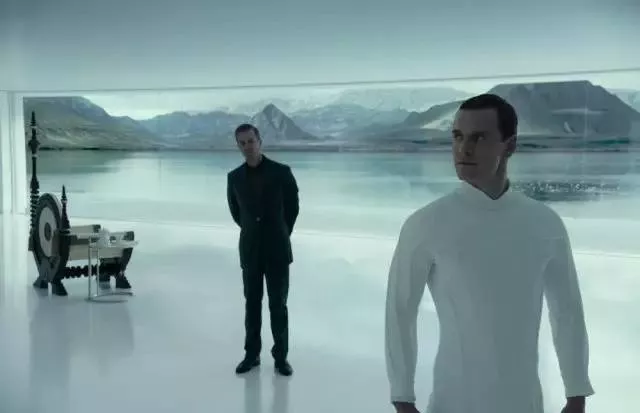
At that moment, there's an imperceptible smile on his face, a smile we're too familiar with, just like when he was on Prometheus, the crew still in a deep sleep, he alone in front of the mirror combing his hair, humming a tune, also revealing such a smile. It's a pride in the face of the creator. In David's consciousness, humans are no longer a threat. On the LV223 planet, he has witnessed the Engineers' brutality and incompetence. All of this leads this android, this immortal who can walk alongside time, to have the ultimate doubt: why can imperfect beings like humans and Engineers be creators, but I can't?
Next, we see the most shocking scene in the film. David pilots the U-shaped spacecraft to the Engineers' homeworld, hovering above, dropping hundreds of "Black Liquid" bombs, watching as the creators of humans perish, the same smile on his face. It's the most considerable mockery of the Engineers who have been obliterated: you were creators and once invincible, but now? Reduced to nothingness, returning to dust. David feels that his time has come. After that, he begins his experiments by creating aliens on this dead planet.
In "Alien: Covenant," we see a strange cycle of creation: Engineers create humans, humans create androids, androids destroy Engineers, and Aliens are created by everyone together. In this cycle, no one is a god or stands at the top as a creator. Even if you are mighty and noble, arrogance is still arrogance, and the ultimate will of the universe, still unseen, laughs at the childishness of all creatures. This is like David questioning Peter Weyland: "You created me, but who created you?"
We can keep asking this question: if the Engineers created humans, who made the Engineers... there's no end because we need a higher-dimensional perspective and transcendental wisdom. So, all the confusion and entanglement are just a loop on the same plane. "When humans think, God laughs." This phrase applies to all those who appear in the Alien world. David ultimately cannot become a god, and his smile is just wishful thinking of arrogance. This is the darkest and most desperate part of "Alien: Covenant."
It's said that Ridley Scott will shoot at least two more Alien series films. One is about the ten years between "Prometheus" and "Alien: Covenant," what happened during that time; the other is a sequel to "Alien: Covenant," connecting with "Alien." With these, we should fully understand the mysteries of the entire Alien world.
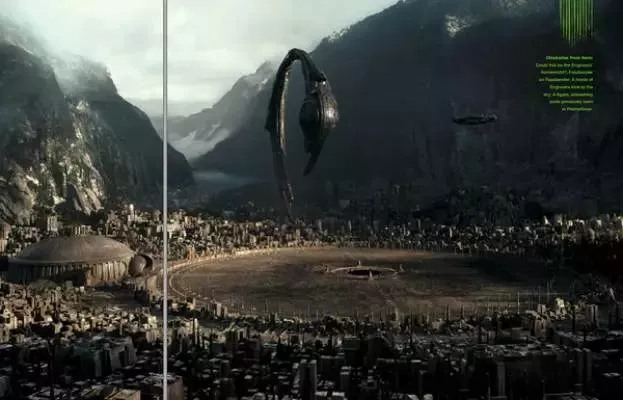
"Alien: Covenant" is not the kind of space monster movie you imagine, nor is it a bloody horror movie with Aliens devouring people as a gimmick. It has greater ambitions and an attempt to redefine the world.








Share your thoughts!
Be the first to start the conversation.